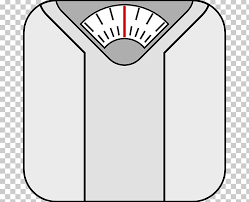I got my first plateau, of 9 days (an arbitrary number, there is no official one), in the middle third of my 9-month weight-loss. There were three of them, about 3-4 weeks apart.
Don’t expect to avoid plateaus. The body is a system of systems and its main composition component is water. When we are very large, we often will have a bodyfat% of 35-45 (Obese male) instead of 18-24 (Normal male). The amount of water our body is using or storing at this present moment is a percentage that is always changing, but it is 60% when we are normal bodyfat% and less when we are higher (bodyfat contains very little water). So, when those upward water fluctuations happen in a body with obesity, they don’t affect the downward trend of our fat loss as much as when those fluctuations happen in a body of normal weight. Therefore, someone with a smaller weight body will get plateaus more often than someone with a higher weight body.
You may read in articles about the body fighting back against losses. That’s true, but if we are tracking and managing our deficit to be both accurate and substantial, then this fighting back doesn’t affect us. The hormonal signals of the body defending a set point would normally cause us to eat more if we were depending on those signals. But we, thanks to tracking and measuring our food, are keeping up our deficit despite those signals.
So the things to do:
- Ensure your program is right and tight. Right in that you still have a pronounced deficit (-500 to -1000 against your current TDEE based on your current stats). Tight in that your tracking is 100% itemized including the oft-forgotten condiments, cooking oils, salad add-ons and dressings, and all the little things and that those things are well estimated.
- Occasionally take a 10-14 day period at maintenance. This helps restore order to your metabolism and your psychology. The body, like much of nature, needs tension and release. I took 3 such periods in 9 months, usually connected to some travel or major holiday. I kept up on exercise and tracking, all the normal things, but at maintenance calories instead of deficit calories. https://bodyrecomposition.com/fat-loss/the-full-diet-break explains the rationale and how-to.
- Expect more plateaus more often as you get closer to goal weight. Expecting them helps us be mentally ready.
- Ride them out. If you’re doing all these things, then assign plateaus to the body doing its watery thing. Nothing is wrong. This is expected and healthy. Sometimes it helps to manage our patience with the thought that at goal weight, our effort becomes to maintain one life-long plateau at goal weight.
- https://www.mayoclinic.org/healthy-lifestyle/weight-loss/in-depth/weight-loss-plateau/art-20044615
- https://health.clevelandclinic.org/weight-loss-plateau/
Edit: changed rational to rationale
I’m currently on the 5th day of an apparent plateau and found this super helpful. Thanks for sharing!
Thank you for this. I find myself incredibly frustrated during plateaus despite knowing a lot of this, especially about water and keeping it “right and tight.”
Seeing this post has really shaken me back into reality; I realize I can choose to take a logical (and healthier) approach, rather than forcing myself to go even more extreme.
I’m aiming to lose a significant amount of weight and I remain concerned about the hit/toll the deficit is taking on my metabolism. What you write (and linked to) about returning to maintenance has helped solidify a solid and smart way of dealing. Much appreciated, thanks again.
Needed this right now



